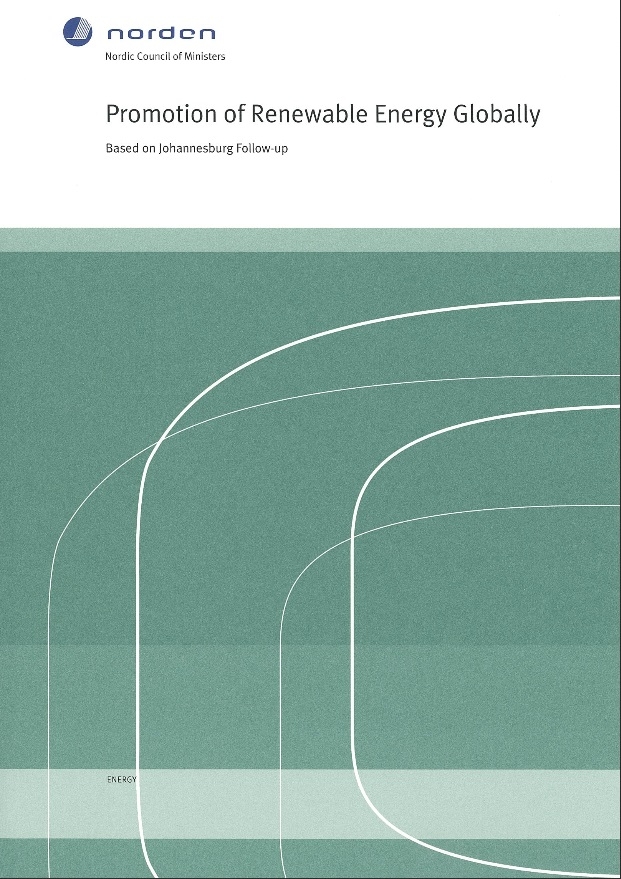Promotion of Renewable Energy Globally
Based on Johannesburg Follow-up

Tietoja
Julkaisupäivämäärä
Kuvaus
Renewable energy sources made their first real entry onto the international energy scene in the 1970s when the two worldwide oil crises occurred. Contribution by renewable energy sources to the world energy supply has since progressively increased. The importance of renewable energy was discussed in for example the 1981’s Nairobi UN Conference, as a means of achieving a sustainable future for our planet. Particularly in recent years, with the pursuit of a sustainable global pattern of energy supply and use, it has been widely acknowledged that renewable energy sources must play a key role. At the World Summit for Sustainable Development (WSSD) in Johannesburg in September 2002, the European Union (EU), all the Nordic Countries and Switzerland together attempted to get the gathering to adopt the goal of increasing the share of renewable energy sources in the world’s total primary energy supply (TPES) to 15% by the year 2010. Neither this attempt nor another initiative that aimed at the goal of 10% share of TPES for the new renewable energy sources succeeded. Notwithstanding this setback, the coalition for renewable energy sources that was formed during the WSSD comprising among others the EU, Iceland, New Zealand, Norway, Switzerland and the Alliance of Small Island States, issued a declaration of their own stating their determination to continue their effort to promote their goals. The report presents and compares the definitions of renewable energy source, highlights the complexity of the debate on renewable energy, including the core controversial issue on targets and finally discuss what Nordic experiences can contribute to removing existing barriers and promoting the use of modern renewable energy sources.
Julkaisunumero
2004:531




